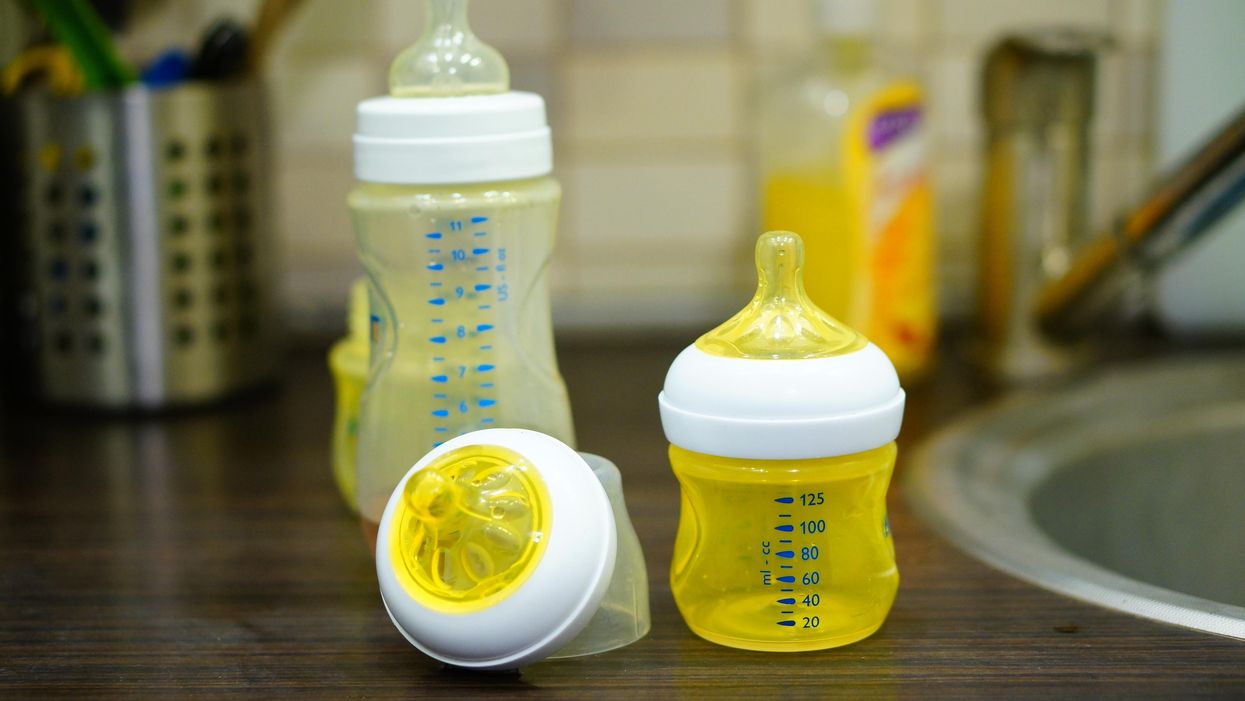There's A Global Shortage Of Infant Formula & Health Canada Says This Is What You Should Do
Officials are monitoring the supply situation.

Baby bottles on a counter.
The recent closure of an infant formula manufacturing plant in the U.S. that produced Similac has led to a global shortage and Canada is starting to feel the effects of it.
According to Health Canada, in certain provinces, the supply of formula designed for babies with food allergies and certain medical conditions is not meeting demand.
"This can be a distressing situation for parents and Health Canada is doing everything it can to mitigate the situation to provide parents with safe and healthy alternatives," says the government.
#ADVISORY: #InfantFormula shortage. Talk to your health care practitioner to determine what alternative type(s) of formula are suitable for your baby. https://ow.ly/Ytxl50Jcl2r\u00a0pic.twitter.com/Su2NUCRtH6— Health Canada and PHAC (@Health Canada and PHAC) 1652985003
If the shortage is affecting you, Health Canada has shared what you can do to help manage the situation:
- "Speak to a health care professional, such as your doctor or pharmacist, to discuss your baby's needs and possible alternative products and how to transition them into your infant's diet.
- If you are combining bottle-feeding and breastfeeding, try to maintain your breastmilk supply and consult your health care professional if you need advice on an allergen free diet.
- Do not attempt to make homemade infant formula as it can put your baby's health at risk. Commercial infant formula contains many important nutrients that cannot be created at home.
- Do not use other substitutes such as cow's milk, goat's milk, evaporated milk, soy or rice beverages as they are not nutritionally complete.
- Do not acquire infant formula or breastmilk from unknown sources, such as online groups or third parties.
- When purchasing infant formula, reserve specialty infant formulas for those with medical conditions requiring these ones and avoid buying large amounts."
Health Canada says that they are monitoring the ongoing supply situation and are working with manufacturers to import products for babies in need of special formula.
This article's cover image was used for illustrative purposes only.
- Enfamil's Company Says The Similac Recall In Canada Doesn't ... ›
- Some Similac Baby Formula Is Being Recalled In Canada Because ... ›
- Certain Baby Formula Products Are Being Recalled In Canada Due To Microbial Contaminations - Narcity ›
- Tainted Baby Formula May Be Linked To A Child's Death & A US Recall Is In The Works - Narcity ›